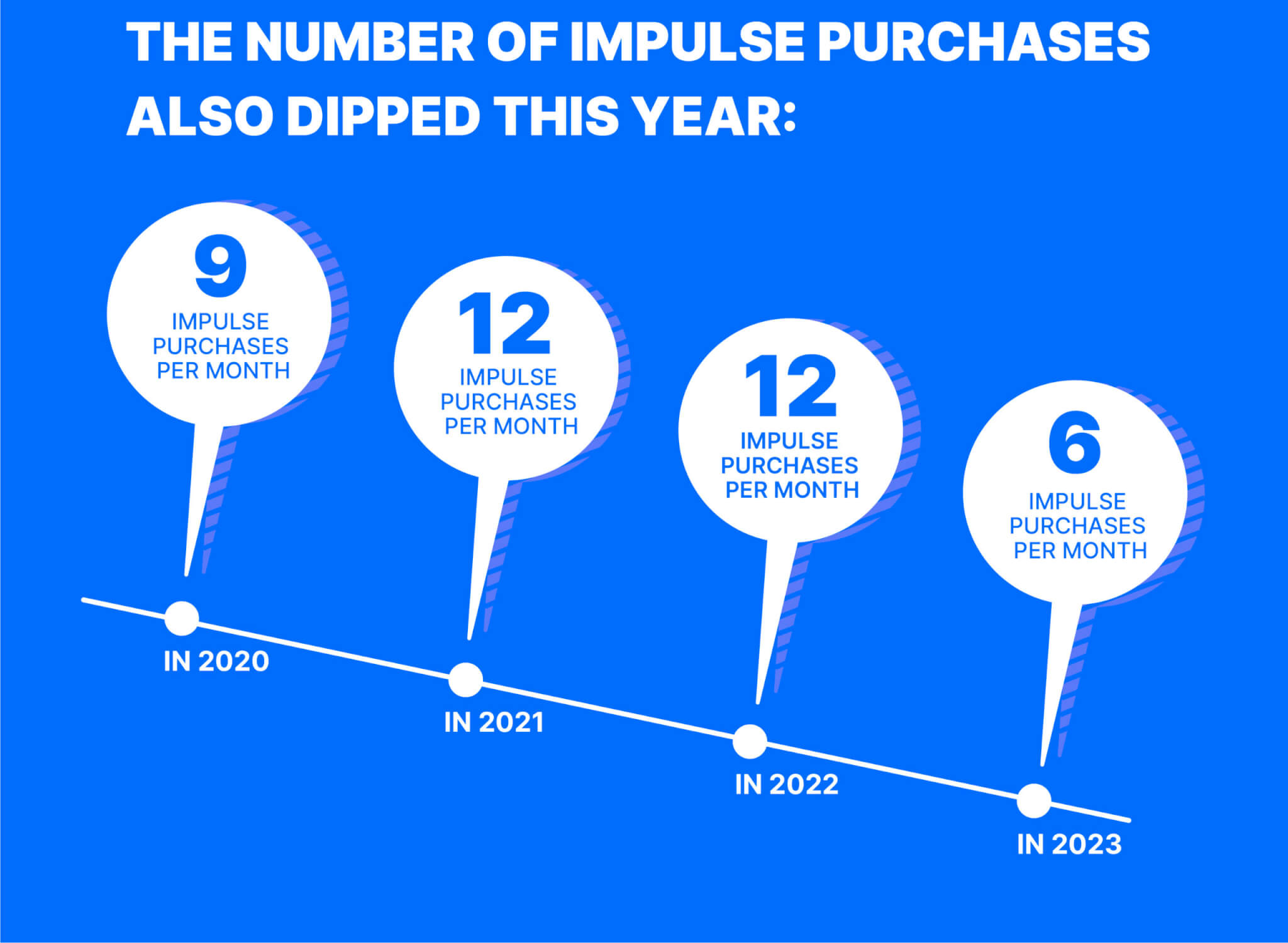NEW YORK — “Impulse buying” is down in 2023 as more shoppers are looking to make “wiser” purchases, according to a new poll. The latest of an annual series of surveys polling 2,000 U.S. adults found 38 percent have decreased the amount of impulse spending this year, up from 14 percent in 2022 and 16 percent in 2021. So, what’s causing people to be more frugal? It’s simple — budget-breaking inflation.
The number of impulse purchases per month also saw a dip this year, with the average respondent making just six impulse purchases per month. That number is down from 12 purchases per month both in 2022 and 2021 and nine per month in 2020.

Respondents are also spending less overall on impulse purchases. The average person is only spending $151 impulsively per month, which is down from previous years, where Americans spent $314 in 2022, $276 in 2021, and $183 in 2020. Seven in 10 have saved money as a result of holding back on their impulse shopping habits — a stark increase from previous studies (58% in 2022).
Commissioned by Slickdeals and conducted by OnePoll, the study revealed inflation has had a huge impact on what 72 percent of people spend their money on, more so than in 2022 when 68 percent shared the same sentiment.
Similarly, 77 percent have been conscientious about their budget this year because of inflation — 39 percent said they make more impulse purchases on necessities than luxuries (19%).
A third (35%) said some of their impulse buys were done to escape the feeling of FOMO, a steep decrease from 2022, where 67 percent made purchases to be part of the “in” crowd.
As a result of focusing more on necessary buys over FOMO buys, the most common impulse shopping categories this year are clothing (55%), food and groceries (50%), and household items (42%).
“With shoppers stating that they are more likely to make impulse purchases on necessities than luxuries, while simultaneously reporting a decrease in impulse spending, we may be seeing a shift in how consumers define an impulse purchase,” says the head of deals for Slickdeals, Vitaly Pecharsky, in a statement. “Shopping opportunistically when there’s a sale on something you need like toilet paper or pantry snacks can ultimately save you money in the long run.”

Results found, in comparison to last year when 73 percent of respondents admitted most of their purchases were impulsive, half as many (36%) are willing to admit to it this year. While 48 percent said they shop the most from their phones (up from 33% in 2022), only 43 percent are more likely to spend impulsively shopping while lying in bed — a sharp decrease from 71 percent last year.
While 32 percent in 2022 reported they would only make impulsive purchases if an item was on sale, 58 percent this year would make the same claim. Over half (53%) always or often look for deals or coupons before making a purchase.
“Budgeting for impulse purchases may seem counterintuitive, but by shopping when there’s a sale on something that you need, you are spending less on items that you likely would have purchased anyway,” adds Pecharsky.
Survey methodology:
This random double-opt-in survey of 2,000 American impulse shoppers was commissioned by Slickdeals between May 9 and May 13, 2023. It was conducted by market research company OnePoll, whose team members are members of the Market Research Society and have corporate membership to the American Association for Public Opinion Research (AAPOR) and the European Society for Opinion and Marketing Research (ESOMAR).

